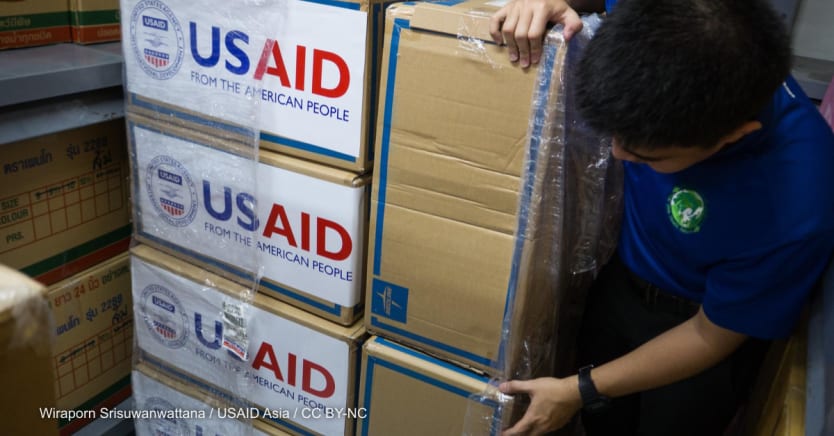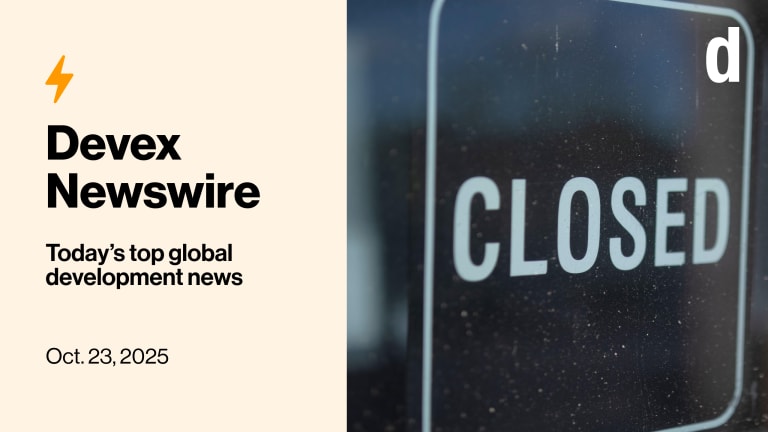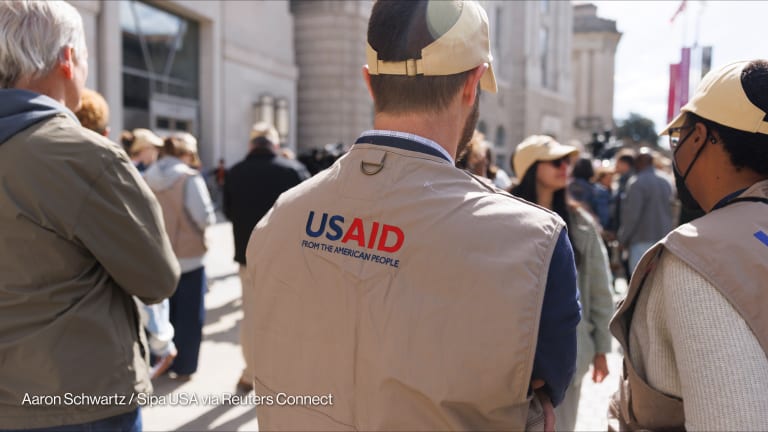
For many development organizations that prize innovation and market-based results, the costs of working with the U.S. Agency for International Development and other large public donors outweigh the potential benefits, according to a report released Wednesday by Unlock Aid, a group pushing to break down some of those barriers.
“Global development agencies largely shut out innovators and move at a glacial pace when we need them to be agile,” the report reads. “If we change the rules of how our public institutions operate, we’ll improve impact.”
What needs to change for USAID to hit its localization target?
USAID Administrator Samantha Power committed to increasing funding to local partners to 25% within the next four years. MFAN, a membership body campaigning for the greater localization of aid, talked about what needs to change to realize this.
Unlock Aid is a relative newcomer among foreign aid reform advocates and has broadened its focus from USAID to other public development agencies. The group’s 34 members lean in the technology-minded direction, with the coalition including organizations such as Zipline International Inc., a drone delivery company; Kasha, an e-commerce platform for women’s health products; and Impact Hub Nairobi.
The group’s executive director, Walter Kerr, has described the members to Devex as the innovative organizations that “the big development funders want to be next to and put on their press releases.”
From that perspective, the business models of agencies like USAID often look prohibitively burdensome and discourage some groups from working with the agency and its peers.
The report, which draws on interviews with leaders from more than 60 “pacesetting” organizations around the world, finds that grants and contracts are too large and complex, the barriers to entry for new partners are too high, and donors’ approach to funding technological innovation is inadequate for bringing products to scale.
While these critiques have been raised before, the report sheds light on how those factors discourage potential partners from working with USAID and other public development agencies.
For example, the complexity of USAID’s process for awarding “cost-plus” contracts, which pay organizations a negotiated rate on top of the cost of implementing the contract, can require upfront investments of more than $200,000 just to compete, the report says. That leaves many contracting opportunities well outside the reach of smaller organizations and those that have not already built the compliance and financial management systems required by USAID.
That price tag reflects the costs of conducting multiple years of audits, paying proposal writers and business development staffers, establishing USAID-compliant financial management systems, and hiring consultants to establish a “negotiated indirect cost rate agreement,” or NICRA, which determines how much an organization will be paid on top of its costs.
One organization told Unlock Aid that getting a NICRA approved by the U.S. government took over a year, despite working with consultants who specialize in that process. Once an organization wins a contract, it still faces major process hurdles.
“We have to spend $50,000 a year just to use clunky software that exists for no other reason than to comply with rules,” one unnamed CEO told Unlock Aid.
“Global development agencies largely shut out innovators and move at a glacial pace when we need them to be agile.”
— Unlock Aid’s “Unlocking Innovation for 21st Century Challenges” reportAccording to the report, “forward-thinking contracting officers and lawyers” are often able to work within the existing rules to design innovative and results-oriented awards, but the problem is that there are too few of them. Some respondents recommended that development agencies set up offices inside their front offices that are led by officials who know the rules inside and out and who can help drive needed reforms in the system.
Kerr told Devex that at a higher level, the report is about re-imagining public development agencies for a new era in which they need to be harnessing the best solutions available.
“Whether you are talking about climate issues or global health issues or border security issues, the role of USAID is so integral to the kinds of things that Americans are thinking about every single day,” Kerr said.
“We have an opportunity to take the conversation about foreign aid and make it not so much a conversation just among an insider community, but connect the mission of this agency with so much of what every American cares about as well,” he said, adding that getting there requires “big structural changes.”
Search for articles
Most Read
- 1
- 2
- 3
- 4
- 5








